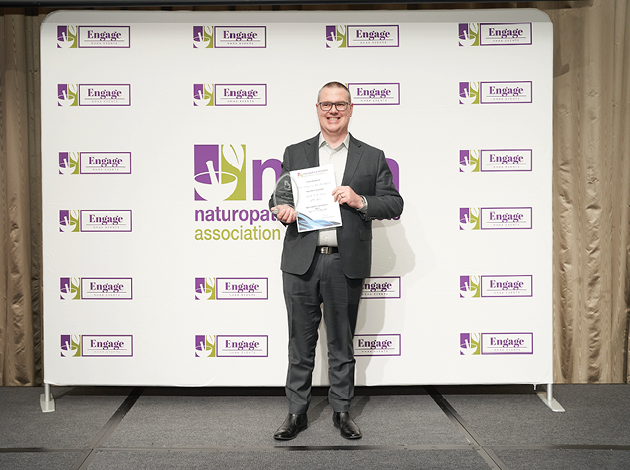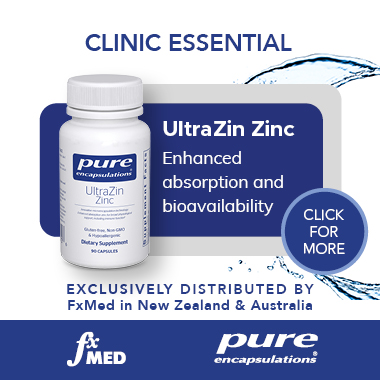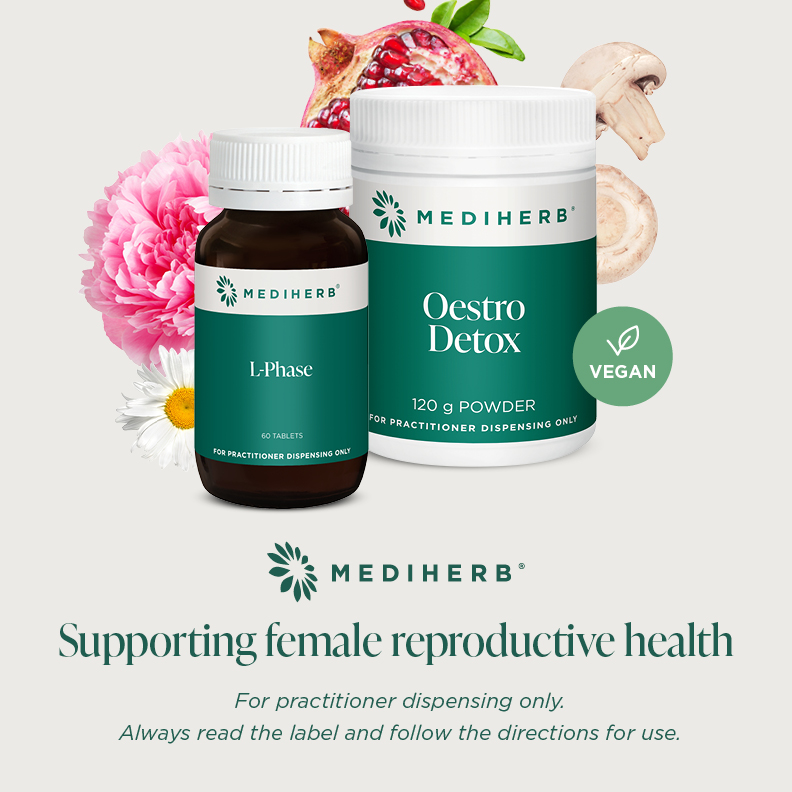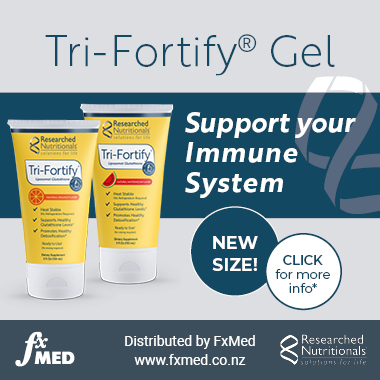Volume 35 Issue 2
Editorial
Susan Arentz
For referencing Arentz S. Editorial. The Australian Journal of Herbal and Naturopathic Medicine 2023;35(2):52-53.
DOI https://doi.org/10.33235/ajhnm.35.2.52-53
Congratulations to the NHAA on the stimulating showcase of naturopathy at the Naturopathic Symposium – thank you for your commitment and hard work from which we all benefit. Congratulations to all those nominated for an award, with special mention to the nominees of the best article published in the AJHNM. In the months before, the AJHNM editorial board judged the articles. All noted dramatic improvements in the areas of scientific enquiry and academic standards, which is an incredible boost to our profession. With an increasing appetite for contributing to evidence-based and evidence-informed practice, and reference to evidence generated from within our professions, these authors’ published articles prioritise relevant issues and naturally account for the nuances of our practice.
I would like to extend congratulations to the winners, the article by Laura Dwyer and Ian Breakspear. Their manuscript titled Systematic review of harm from case reports and clinical trials of the oral use of Arctostaphylos uva-ursi, Turnera diffusa and Achillea millefolium was pivotal in our understanding of the issues behind in the restriction of arbutin containing herbal medicines.

The best article was awarded to Laura Dwyer and Ian Breakspear (pictured).
In 2018–19 the Therapeutic Goods Administration (TGA) reclassified these herbal medicines to Schedule 4 due to a risk of ingesting hydroquinone as a metabolite of arbutin. Hydroquinone is listed as a poison in the TGA Poisons Standard. Schedule 4 specifically applies to prescription-only medicines. These are medications that require a prescription from a medical doctor or dentist before they can be dispensed. Under Schedule 4, prescription medicines are considered to have a higher level of risk compared to over-the-counter (OTC) medicines. As statutorily unregulated professions, naturopaths and herbalists fall outside of the health professionals qualified to prescribe medicines listed on Schedule 4, despite our expert knowledge and experience in the clinical use of herbal medicines.
In December 2020, after members rallying and several NHAA initiatives, these herbal medicines were rescheduled and again became available to naturopaths and herbalists for legal dispensing. Suffice to say, the impact of this winning article by Laura and Ian was pivotal in informing the profession about the issues and problems, and providing evidence supporting the naturopaths and herbalists’ case. Investigations like this, along with dissemination following peer review and publication in a scientific journal, are crucial in supporting the transparency and credibility of our knowledge.
This is one of the things that swerved the direction of the AJHNM in 2016–17 when the decision to steer the journal towards a scientific publication was proposed. The aim was to improve the visibility of naturopathy and herbal medicine and elevate their standing as academic health disciplines, supporting naturopaths and herbalists to take advantage of the multidisciplinary health and wellbeing practice opportunities that are emerging, and to provide an academic contribution for the NHAA.
Education about research methods is a relatively new inclusion in many undergraduate health programs, despite its appraisal being fundamental knowledge needed for evidence-based practice and policy development. With this in mind, the AJHNM established a mentor program to support naturopaths and herbalists participate in the growing area of scientific publication. The MACA mentor program is based on authors’ engagement with an experienced published author in exchange for co-authorship of the manuscript. MACA stands for Mentor and Author in Return for Co-Authorship. Since its inception, nine authors have developed and published their manuscripts with the help of the MACA program.
Scientific journals are defined by a peer review process prior to manuscript publication. This means that, following submission, every manuscript is reviewed for transparency, rigour, academic writing and meaningfulness to professional practice and policy by an experienced peer, colleague or expert. Peer reviewers are invited to review manuscripts based on their specialised expertise and knowledge. It is a voluntary role that most do to ensure the academic integrity of a topic in which they are interested. Peer reviewers make recommendations about the publication of manuscripts. Aspects that are considered include clarity of the question, transparency and rigour of the methods, the impartiality of the results, and the overall impact of the information.
There is also a standard writing format. A great majority of manuscripts submitted require editing prior to publication. For authors, it is not easy to receive critical feedback about their paper and many feel disillusioned, especially when they have already contributed hours to their manuscript. As academics, we’ve all been at that disappointing place and know how deflating it can be. The MACA program also assists with this to ensure less ‘giving-up’. It supports inexperienced authors to re-invigorate their enthusiasm by providing receiver-centred feedback, and a hand to hold whilst walking through redevelopment, peer review and publication. The point of editing a manuscript before publication is to ensure the manuscript is the best that it can be, precisely informing the readership and professions.
The editorial board is always thrilled to receive a manuscript by an NHAA member and it’s even better publishing one. I invite you to continue to submit your manuscripts, and reassure you that there is personalised support, if wanted. I urge you to persist with publishing as your articles are directly relevant to our practice and showcase our knowledge capital on a global publication stage.
Speaking of critical feedback, I recently received some about the AJHNM. Not everyone who reads it is happy with the dry, scientific rigour of the journal. Some feel that the AJHNM has unhinged its traditional roots. Although that was never intended, and a few articles link age-old traditional practices to scientific reporting with pictures, it is easy to see this point when flicking through the pages. There is very little colour, little narrative or story, no progress mapping or exploration of tribulations and debates. To address this problem, we aim to include more colour, more narrative and more story. On that note, I vigorously invite you to submit commentary about your experiences. It could be about growing and producing naturopathic and herbal medicines, teaching and community education, tricky cases, peculiar, strange or rare reactions and safety, or anything else you think tells our stories and shares experience. I do agree these voices will enrich the journal. For convenience, here is the submission link. As per above, do not be afraid of the peer review process – there is plenty of support.
At the time of reading this, the Naturopathic Symposium will be past, and we will be preparing to publish all the photos in the September issue. Hopefully you were able to attend and catch up with others, sharing a new appreciation of in-person events after the lockdown years. However, if not, I’m certain the collegial spirit of the symposium is accessible through the NHAA communications and will be there at other events on the horizon, including the NHAA local chapter meetings.
This issue has a focus on forest bathing. Gabby Pavlovic and Greg Connolly included nine studies in their systematic review of evidence for immersive forest bathing for physical and psychological stress reduction. The results provide evidence for immersion in nature as a strategy to manage the stress of everyday life.
Also included is an evaluation of green tea mouthwash for people with head and neck cancers by Shirazian and colleagues. The aim was to reduce burning and pain associated with radiation-induced oral mucositis. In a randomised control trial, green tea mouthwash compared to placebo controls for pain and burning sensation of mucositis.
Dr Wendy McLean has produced MedPlant and MedJourn along with CPD questions. More and more systematic reviews evaluating the efficacy of naturopathic and herbal treatments are being published, which signals an increase in the volume of evidence supporting our treatment decisions. Enjoy.
To submit a manuscript click here
Author(s)
Susan Arentz PhD, BHSc(Hons)
Editor, Australian Journal of Herbal and Naturopathic Medicine
PO Box 696, Ashfield, NSW 2131, Australia
Email editor.ajhnm@nhaa.org.au






